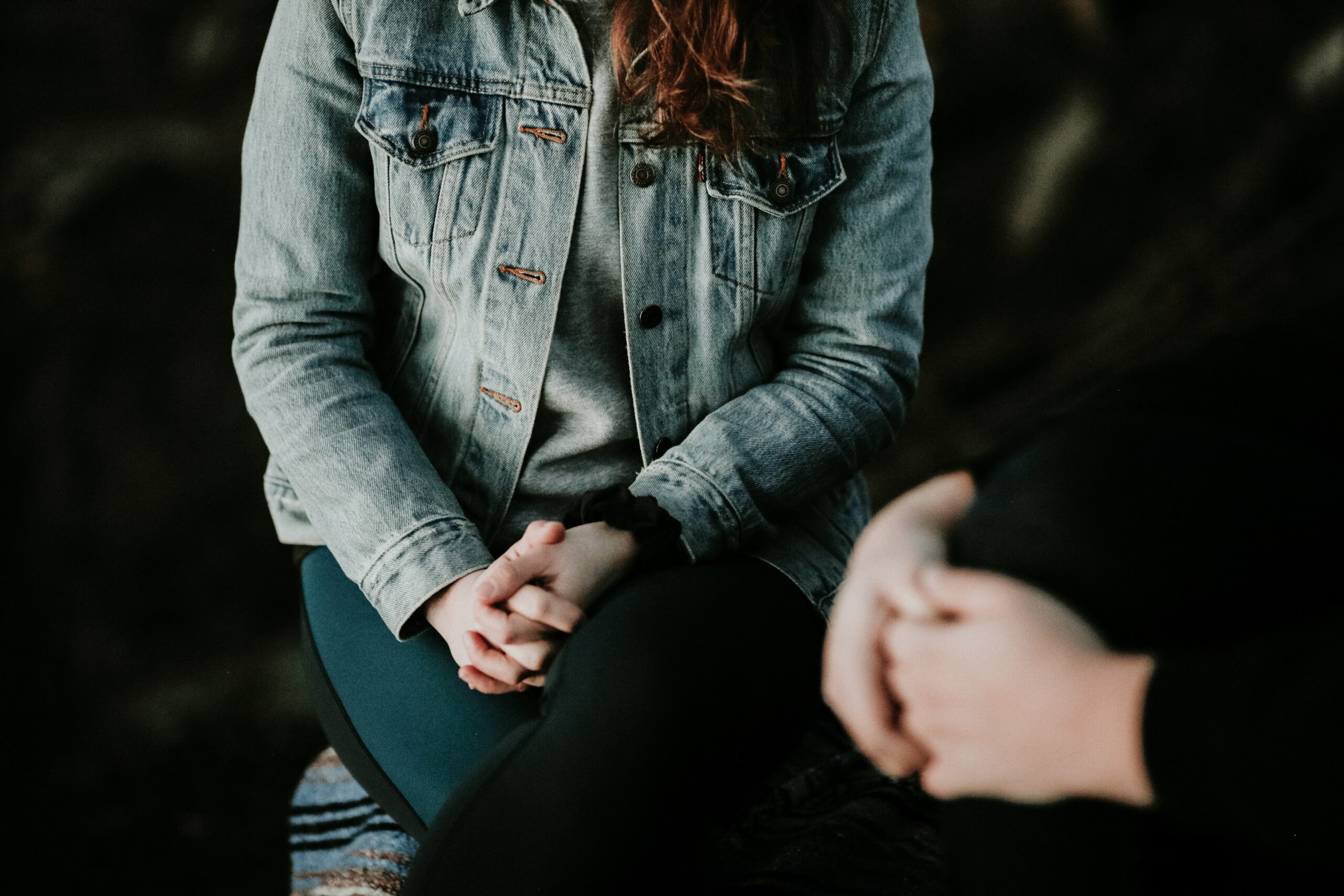
On an unseasonably hot day in June, Jordan visited The Alex Youth Health Centre. She’d heard about The Alex years ago from a friend, but didn’t know much about it. As she bled from her wrist that afternoon, it was the only place she could think of to go.
Jordan had always struggled with self-harm and today was particularly difficult. Even though she was feeling desperate, Jordan knew she didn’t want to go to the hospital. She’d been through that before and knew that this time she needed more than a bandage on her wrist and a night in the psych ward. Yes, Jordan was in distress, but she wasn’t suicidal. In fact, she saw cutting herself as a way to cope.
“I need help,” Jordan said to Meghan, the social worker who greeted her as she arrived at The Alex. As she held up her arm, Meghan moved calmly but quickly. “Come with me,” she said. “We’re going to help you.” Meghan asked nurse Caitlyn to join them in an exam room to treat Jordan’s wound.
When someone comes to The Alex who has harmed themselves, it is protocol for a physician to do a psychiatric assessment to determine whether that person needs to be admitted to a hospital or if they can be discharged. So,
while Caitlyn cleaned and bandaged Jordan’s wound, Meghan walked down the hall to talk to the doctor on shift at The Alex that day.
Dr. Clain was able to see Jordan right away. She did an extensive assessment, asking her lots of questions and doing a physical exam. During the assessment Jordan mentioned that about a week ago she ran out of the medication she’d been taking to treat her depression. She couldn’t renew the prescription because she lost her part-time job at Tim Hortons and couldn’t afford them anymore. The Alex always has common medications on hand in case of an emergency like this, so Dr. Clain gave Jordan a 2-week supply so she could immediately resume her regimen with the hope that her mental health could stabilize.
Dr. Clain concluded that Jordan did not need to go the hospital, but that mental health support was still needed immediately. Moments later, Dr. Clain brought in a mental health clinician at The Alex named Elaine. With a bandage on her wrist and a bottle of her medication in her hand, Jordan followed Elaine into a quiet, comfortable office for same-day counselling.

Over the next half hour, Jordan and Elaine talked about what triggered her that day what tools she could use to
stay safe over the next few days. Meghan met Jordan at Elaine’s office door and led her to another office where
they sat down.
“So,” she said “you’ve got meds for the next couple of weeks but we need to apply for emergency medication coverage so you can stay on them after they run out. I know they’re expensive normally, but it’s really important that you don’t stop taking them. This program is for people who can’t afford their medications, so they’ll be covered. Are you hungry?”
That last question took Jordan by surprise. That’s not something you hear in a doctor’s office. In fact, from everything she’d experienced so far, it was clear this place was unlike anywhere she’d been before.
“Uh, yeah” she said. “I haven’t eaten all day.” Meghan smiled, went to the fridge in another room and returned with a to-go box and a plastic fork. She encouraged Jordan to eat as they talked. Jordan opened the box expecting pasta or something like she would get from the food bank, but was pleasantly surprised to find a grilled chicken breast on a bed of fresh cesar salad.
As Jordan ate, Meghan noticed the colour returning to her face. “Where are you living right now?” Meghan asked. Jordan started to talk about her situation. She talked about how she was living in a group home, but when she turned 18 last month, it meant she had aged out of the system. Without many other options, she moved in with her birth mother.
Jordan went on about how her mother and her mother’s boyfriend Dave would disappear for days. And when they were home, Dave was not kind to Jordan – he wasn’t very happy about having another mouth to feed, and when she lost her job, he became even more upset about her being there.
“I’d like you to come back here in a couple days” Meghan said. “We’ve made a referral for intensive case management, which means you can come back and see me regularly, and we can work together to improve your situation. We can find you somewhere safer to live and you can continue seeing Elaine for counselling – and none of it will cost you anything. Will you come back on Friday?” Jordan enthusiastically agreed.
Jordan was at The Alex for one hour. Her immediate needs like her self-harm wounds and heightened emotional state were addressed first by a nurse and a doctor. She then saw a counsellor to help manage her distress in the short
term. Jordan then saw a social worker to apply for medication coverage, eat a healthy meal, and create a plan to continue getting support over the next several months.
In one hour, Jordan received holistic, wraparound care from four practitioners that covered all aspects of her health. This model prevented Jordan from costing the system more by needing emergency services. It also enabled her to work with staff in the long term on the root mental health and housing issues she was facing. It All Adds Up.
After a day of crisis, then seeing all those people at The Alex, Jordan was utterly exhausted. But as she sat down in an empty seat on the train with a full belly and an appointment set for Friday, she felt relieved. It had been a long time since she felt cared for like that and was looking forward to going back. As she settled in for the ride, she leaned her head against the train window, smiled, and thought maybe everything will be OK after all.
Need help?
If you are in distress, please call the Distress Centre at 403-266-HELP (4357).
To learn more about the Youth Health Centre call 403-520-6270, email youthinfo@thealex.ca, or click the button below.
Want to help?
Your generosity can sponsor medical equipment, provide a hot meal, identification, or housing for our street-connected youth.
